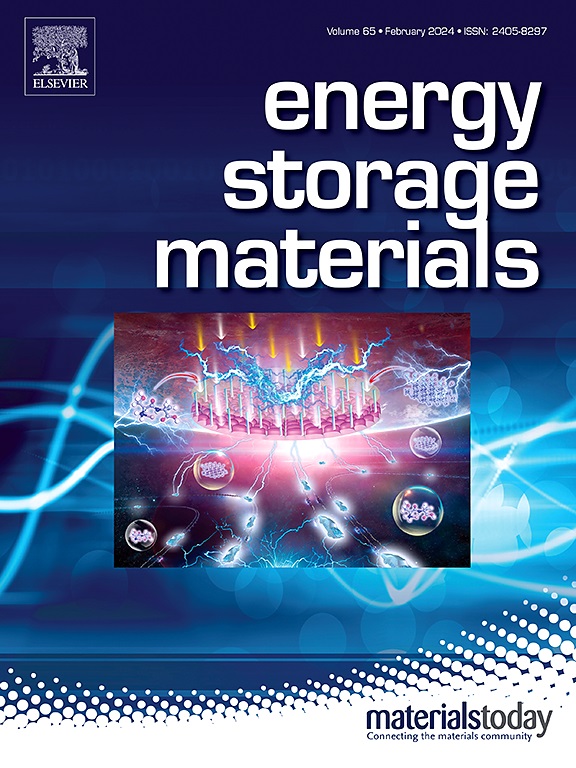Supercapacitor safety: Temperature driven instability and failure of electrochemical double layer capacitors
IF 20.2
1区 材料科学
Q1 CHEMISTRY, PHYSICAL
引用次数: 0
Abstract
While supercapacitors are widely considered to be safer than current lithium-ion battery technologies, their reputation for safety, stability, and long cycling lifetimes is primarily based on their testing under highly favourable electrochemical and environmental conditions. However, the impact of extreme conditions on even the most common Electrochemical Double Layer Capacitors (EDLCs) remains unclear, limiting the understanding of their potential failure mechanisms and the risks they could present to individuals and systems into which they are increasingly being integrated. In this study, we investigate the effects of thermal abuse conditions, induced by overheating and overcharging, on a typical commercial EDLC. Our findings reveal that while EDLC cell failures are less extreme than the well-documented failures of Li-ion batteries, they still pose significant risks to the integrity of the cell itself and the direct environment. This is most evident from the fact that between the overheating and overcharging tests, more than half of all the cells tested in this study failed catastrophically, leading to an explosive event. The high cell temperatures induced by these abusive tests led to electrolyte vaporisation and cell gassing that was not effectively mitigated by cell vent designs. This study therefore challenges the perception of intrinsic supercapacitor safety and provides a foundation onto which safer system designs can be built.
超级电容器的安全性:电化学双层电容器的温度驱动不稳定性和失效
虽然超级电容器被广泛认为比目前的锂离子电池技术更安全,但它们在安全性、稳定性和长循环寿命方面的声誉主要是基于它们在非常有利的电化学和环境条件下的测试。然而,极端条件对最常见的电化学双层电容器(edlc)的影响仍然不清楚,这限制了对其潜在失效机制的理解,以及它们可能给个人和系统带来的风险。在这项研究中,我们研究了过热和过充电引起的热滥用条件对典型商用EDLC的影响。我们的研究结果表明,虽然EDLC电池的故障没有锂离子电池的故障那么极端,但它们仍然对电池本身的完整性和直接环境构成重大风险。最明显的事实是,在过热和过充测试之间,本研究中测试的所有电池中有一半以上失败,导致爆炸事件。这些滥用试验引起的电池高温导致电解液蒸发和电池气体排放,而电池排气设计无法有效减轻这种情况。因此,这项研究挑战了固有超级电容器安全性的认知,并为构建更安全的系统设计提供了基础。
本文章由计算机程序翻译,如有差异,请以英文原文为准。
求助全文
约1分钟内获得全文
求助全文
来源期刊

Energy Storage Materials
Materials Science-General Materials Science
CiteScore
33.00
自引率
5.90%
发文量
652
审稿时长
27 days
期刊介绍:
Energy Storage Materials is a global interdisciplinary journal dedicated to sharing scientific and technological advancements in materials and devices for advanced energy storage and related energy conversion, such as in metal-O2 batteries. The journal features comprehensive research articles, including full papers and short communications, as well as authoritative feature articles and reviews by leading experts in the field.
Energy Storage Materials covers a wide range of topics, including the synthesis, fabrication, structure, properties, performance, and technological applications of energy storage materials. Additionally, the journal explores strategies, policies, and developments in the field of energy storage materials and devices for sustainable energy.
Published papers are selected based on their scientific and technological significance, their ability to provide valuable new knowledge, and their relevance to the international research community.
 求助内容:
求助内容: 应助结果提醒方式:
应助结果提醒方式:


